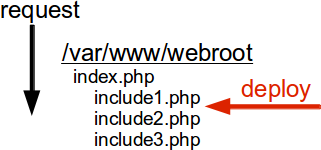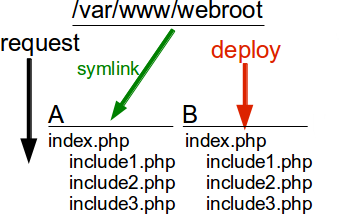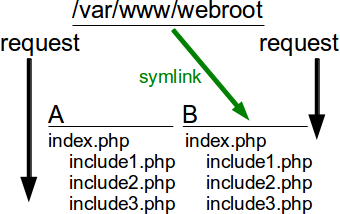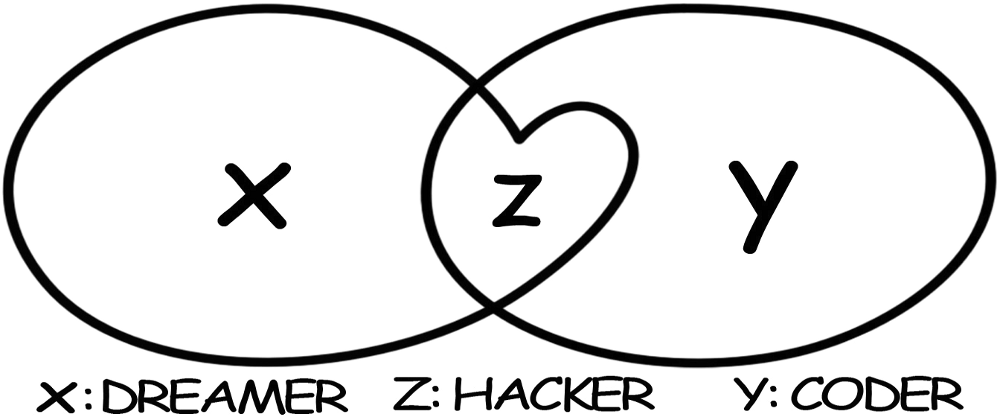PHP
phpday.it
Verona
May 16, 2014
http://talks.php.net/phpday14Rasmus Lerdorf
@rasmus

PHP 5.5
Performance Improvements
- Nested calls
- Call stack pre-allocated by compiler
- Bundled opcode cache
✔ Generators
function xrange($start, $end) {
for ($i = $start; $i <= $end; $i ++) {
yield $i;
}
}
foreach (xrange(0, 5) as $i) {
echo $i, "\n";
}✔ Coroutines
function logger($fileName) {
$fileHandle = fopen($fileName, 'a');
while (true) {
fwrite($fileHandle, yield . "\n");
}
}
$logger = logger(__DIR__ . '/log');
$logger->send('Foo');
$logger->send('Bar');For an advanced explanation of coroutines, read this article by Nikita Popov
✔ finally
$db = mysqli_connect();
try {
call_some_function($db);
} finally {
mysqli_close($db);
}✔ list() in foreach
$names = [ ['John','Smith'], ['Fred','Johnson'] ];
foreach($names as list($first,$last)) {
echo $first,$last;
}✔ Const array/string Dereferencing
echo array(1, 2, 3)[0]; //output 1
echo "foobar"[3]; //output b
echo [1,3,4][2]; //output 4✔ empty() support for functions/expressions
✔ curl upload functionality rewritten
✔ Simplified password hashing API
// Hash
$hash = password_hash("super secret",PASSWORD_BCRYPT);
// To validate $pwd against the stored hash
if (password_verify($pwd, $hash)) {
echo 'Password is valid!';
} else {
echo 'Invalid password.';
}PHP 5.6
✔ Variadic functions
class MySQL implements DB {
public function query($query, ...$params) {
$stmt = $this->pdo->prepare($query);
$stmt->execute($params);
return $stmt;
}
}
$q = 'SELECT * FROM users WHERE id = ?';
$user = $db->query($q, $userID)->fetch();✔ Argument Unpacking
// A better call_user_func_args
$args1 = [1, 2, 3];
$args2 = [4, 5, 6];
test(...$args1, ...$args2); // [1, 2, 3, 4, 5, 6]
test(1, 2, 3, ...$args2); // [1, 2, 3, 4, 5, 6]
test(...$args1, 4, 5, 6); // Fatal error: Cannot use positional argument after argument unpacking✔ Constant scalar expressions
class Foo {
const FOO = 1 + 1;
const BAR = 1 << 1;
const GREETING = "HELLO";
const BAZ = self::GREETING." WORLD!"
}✔ Add right-associative power operator **
echo 2 ** 3 ** 2; // 512 (not 64)
echo -3 ** 2; // -9 (not 9)
echo 1 - 3 ** 2; // -8
echo ~3 ** 2; // -10 (not 16)✔ Internal operator overloading for internal features like GMP
echo 2**512;
echo "\n";
$n = gmp_init(2);
echo $n**512;1.3407807929943E+154
13407807929942597099574024998205846127479365820592393377723561443721764030073546976801874298166903427690031858186486050853753882811946569946433649006084096
✔ use function and use const namespace imports
include 'template.inc';
include 'db.inc';
use function template\header, template\footer, db\query;
header('My Page');
query('select * from stuff');
footer();✔ default_charset ini now applies to internal funcs
✔ SSL Peer verification by default
✔ openssl certificate fingerprints
✔ SAN x509 ext matching when verifying host names
✔ automatic DoS prevention of TLS renegotiation attacks
✔ and many more openssl-related options
✔ Asynchronous PostgreSQL database connections
✔ Non-blocking PostgreSQL queries
✔ New phpdbg SAPI
✔ Support for > 2GB file uploads
✔ The php://input stream is now re-usable
✔ Added hash_equals() for timing attack safe string comparison
✔ Added gost-crypto (CryptoPro S-box) hash algorithm
✔ FPM workers can now change their apparmor profile
✔ OCI8 Improvements
Deploying Web Apps
Are your deploys atomic?
Are you sure?
What happens to a request that is currently executing when you deploy?
Deploying Web Apps

Deploying Web Apps
✔ Don't copy files into current document root
✔ Let existing requests finish on old code
✔ New requests start on new code
✔ Avoid clearing your opcode cache
✔ Minimal impact on production traffic
Deploying Web Apps

Deploying Web Apps

Deploying Web Apps
2 Document Root directories
Symlink /var/www/site toggles between them
realpath() symlink at the web server level
Set Document Root to symlink realpath
Never hardcode the document root in code
Deploying Web Apps
Apache
http://github.com/etsy/mod_realdoc
nginx
You can use $realpath_root
eg. fastcgi_param DOCUMENT_ROOT $realpath_root;
PHP
http://github.com/etsy/incpath





Work on things that matter (to you)
We are running out of things that can be solved in isolation with our keyboards



